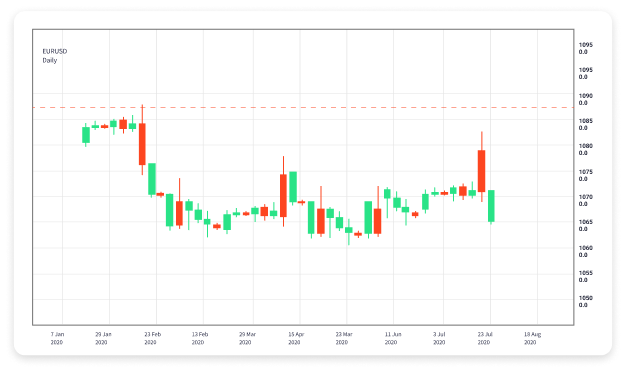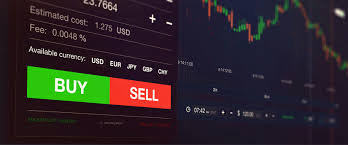
Mastering Forex Paper Trading: A Comprehensive Guide
In the world of trading, whether it be stocks, commodities, or Forex, the importance of practice cannot be overstated. One of the most effective ways to hone your skills is through Forex paper trading. A risk-free approach allows novice and experienced traders alike to test their trading strategies without the financial burden. In this guide, we’ll explore the concept of Forex paper trading, its advantages, and how it can significantly sharpen your trading acumen. Additionally, we’ll share tips to make the most out of this practice and ultimately improve your trading strategy in live markets. For additional resources, check out forex paper trading Best UAE Brokers.
What is Forex Paper Trading?
Forex paper trading refers to the practice of simulating Forex trades without using real money. Traders use demo accounts provided by Forex brokers, where they can execute trades, track performance, and develop strategies in a simulated environment. This method allows you to practice trading without the risk of financial loss while gaining valuable experience and insights.
Benefits of Forex Paper Trading

Paper trading offers numerous advantages:
- No Financial Risk: The primary benefit is the ability to trade without risking actual funds. This safety net allows traders to experiment with new strategies confidently.
- Skill Development: Beginners can get acquainted with trading platforms and market analysis tools, helping to enhance their overall trading skills.
- Emotional Control: Paper trading minimizes the emotional stress associated with real trading, allowing traders to make decisions based solely on strategy without the fear of losing money.
- Performance Tracking: Traders can analyze their strategies’ effectiveness over time and make necessary adjustments based on actual performance metrics.
How to Get Started with Forex Paper Trading
If you’re interested in starting with Forex paper trading, follow these steps:
- Choose a Reliable Broker: Select a Forex broker that offers a reputable demo account service. Ensure that they provide a trading platform that mimics live trading conditions.
- Set Up Your Demo Account: Once you’ve chosen a broker, register for a demo account. This usually involves signing up with your email and personal information.
- Familiarize Yourself with the Trading Platform: Take time to learn how to navigate the platform. Understand order types, chart analysis tools, and risk management features.
- Create a Trading Plan: Draft a structured trading plan that outlines your goals, strategies, and risk management rules. Sticking to a plan can improve discipline during trading.
- Start Trading! Begin executing trades with virtual funds and monitor your results. Adjust your strategies as needed based on market conditions and your performance.
Strategies for Effective Paper Trading
To maximize the benefits of Forex paper trading, consider implementing these strategies:

- Trade with Realistic Conditions: Try to simulate real market conditions as closely as possible. Set realistic expectations and treat paper trading with the same seriousness as live trading.
- Test Different Trading Strategies: Use this opportunity to experiment with various trading strategies. Whether you prefer day trading, swing trading, or scalping, practice each to see what works best for you.
- Analyze Your Trades: After executing trades, review your decisions, mistakes, and successes. Keeping a trading journal can be beneficial for tracking your progress and learning from your experiences.
- Incoporate Technical and Fundamental Analysis: Use chart indicators, trend lines, and fundamental news to enhance your trades. Understanding how various factors impact currency movements is crucial for success in Forex trading.
- Gradually Transition to Real Trading: Once you feel confident in your abilities after completing sufficient paper trading, gradually transfer to live trading. Start with a small amount of capital to mitigate risks.
Common Mistakes to Avoid in Paper Trading
While paper trading provides a safe arena for practice, some traders may sabotage their learning experience with common mistakes. Here are pitfalls to avoid:
- Treating Paper Trading Too Casually: Some traders may neglect their paper trading sessions and not take them seriously. Always approach every paper trade with patience and analysis as you would with real trades.
- Ignoring Risk Management: Just because there’s no real money on the table does not mean that risk management is unnecessary. Develop proper risk management habits even during paper trading.
- Overtrading: Without the emotional weight of real trading, some may be tempted to trade excessively. This could lead to poor decision-making. Keep your trading consistent and within your plan.
- Failing to Adapt: The market is constantly evolving. Adapting your strategies based on their performance and changing market conditions is crucial. Don’t stick to a failing strategy just because you’ve tested it during paper trading.
Conclusion
Forex paper trading is an invaluable tool for both novice and experienced traders seeking to sharpen their skills. By offering a risk-free environment, it allows traders to experiment, learn, and develop their strategies effectively. As you engage in paper trading, remember that the ultimate goal is to become a disciplined, skilled trader ready to tackle the live markets with confidence. Implement the strategies discussed, keep track of your performance, and continually adapt to the shifting landscape of Forex trading. The knowledge and experience gained from Forex paper trading will undoubtedly pave the way for more successful trading in the future. Happy trading!




Leave a Reply